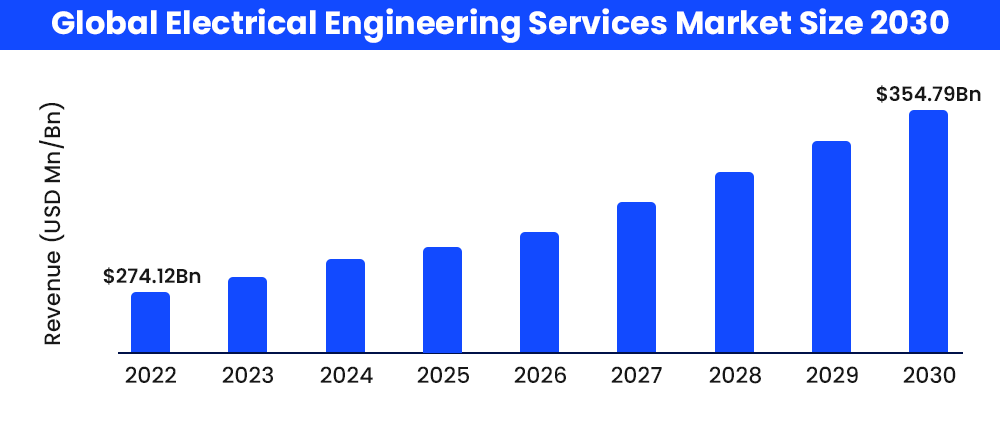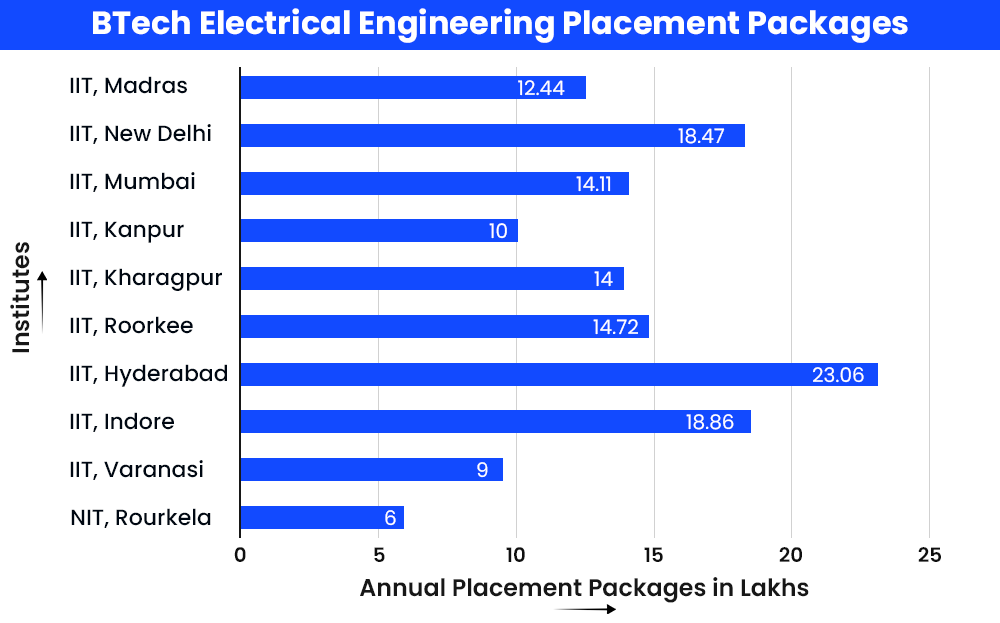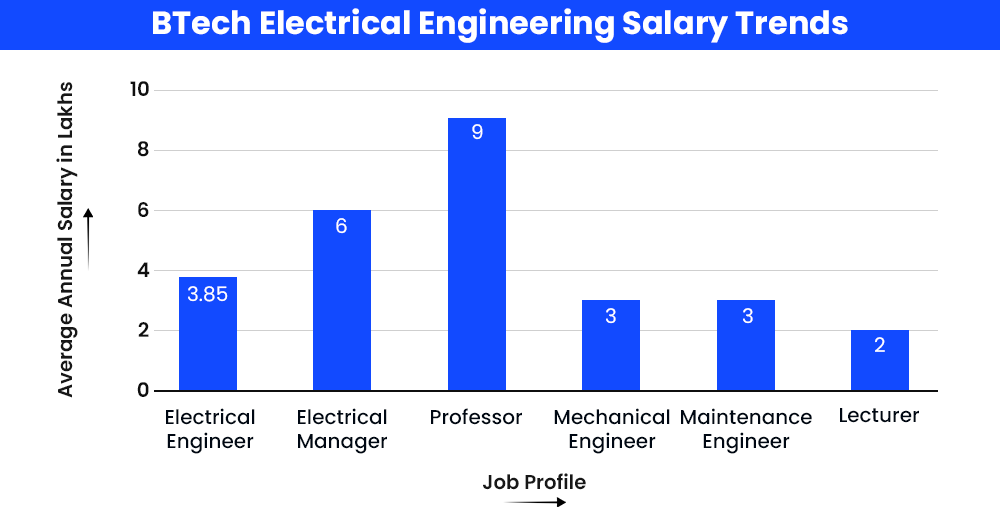Expert Interviews
- University Reviews
- Career Guide
 Video Counseling
Video CounselingImportant Facts
- Ask any Question - CV Forum

BTech In Electrical Engineering 2026- Explained Everything!
Shalini Adhana Jan 10, 2026 1.2K Reads

Electrical Engineering is one of the most interesting specializations of engineering. The domain allows electrical engineers to work with energy management in microgrids, design and optimization of smart grids, and artificial intelligence modeling for power systems. The EE program offers a complete understanding of the safe transmission of electrical engineering, including planning, developing, designing, and maintaining electrical systems.
Electrical engineering has changed our lives due to the introduction of light bulbs, telephones, radios, and televisions, and the development of transistors and integrated circuits to electric motors, home appliances, renewable energy, artificial intelligence, and healthcare.
What is Electrical Engineering?
To describe an Electrical Engineering course in simple terms, it is the engineering branch that engages with electricity, electronics, and electromagnetism which is used in developing power grids and technological fields.
Power plants and hardware companies require electrical engineers to perform operations at power plants, electrical motors, computer chips, industrial machinery, and ignition systems much needed for aircraft, automobiles, and space crafts.
The duration of the Electrical Engineering is 3/ 4 years. If a candidates apply for the program after the 12th standard, they are eligible to apply for the B.Tech Regular program (4 years). In case candidates apply for the program after a polytechnic diploma, the duration of the program is 3 years.

BTech Electrical Engineering- Regular Course
After getting an electrical engineering undergraduate degree, students can practice their learning or acquire skills on the job training to start their line of work. Here are the highlights of the BTech Electrical Engineering Regular Course:
|
BTech Electrical Engineering After 12th |
|
|
Particulars |
Details |
|
B.Tech ( Full Form) |
Bachelors of Technology |
|
B.Tech Specialization |
Electrical Engineering (EE) |
|
Degree |
Undergraduate |
|
Duration |
4 years |
|
Semester |
8 |
|
Eligibility |
|
|
Entrance Exam |
JEE Mains, JEE Advance, VITEEE, SRMJEEE |
|
Top Colleges |
IIT Bombay, IIT Delhi, VIT Vellore, IIT Madras, DTU |
|
Jobs |
Electrical Maintenance Engineer, Electrical Designer Engineer, Content Writer, Associate, Electrical Engineer, Broadcast Engineer, Nuclear Engineer, Systems Analyst |
|
Top Recruiters |
Larsen & Toubro, NTPC, Siemens, Aerotek, Havells India Limited, Wipro Lighting Corporate, Schnider Electric |
|
Sectors |
Manufacturing, Healthcare, Defence, Research and Development, Logistics, Telecommunications, Networking, Electronic Components, Industrial Electronics, and Consumer Electronics |
|
Salary |
Fresher salary ranges between INR 19,000 and INR 30,000 per month |
BTech Electrical Engineering- Flexible Timing Course
BTech Regular Program can be applied after the 12th standard, and BTech Flexible Timing courses, such as BTech Lateral Entry or BTech for Working Professional, can be enrolled after the Polytechnic Diploma. The program is suited for those who are looking for the Distance B.Tech Electrical Engineering program. Distance B.Tech Electrical Engineering is an invalid program and not approved by UGC and AICTE.
The purpose of introducing the BTech Flexible Timing program is to advance the skills of employees or working professionals.
|
BTech Electrical Engineering Lateral Entry |
|
|
Particulars |
Details |
|
B.Tech Lateral Entry Specialization |
Electrical Engineering (EE) |
|
Degree |
Undergraduate |
|
Duration |
3 years |
|
Semester |
6 |
|
Eligibility |
|
|
Entrance Exam ] |
LPUNEST, Haryana LEET, PULEET, DTU LEET
|
|
Top Colleges |
Lingaya’s Vidyapeetha University, Shri Venkateshwara University, DTU, LPU, Sanskriti University |
|
Jobs |
Electrical Maintenance Engineer, Electrical Designer Engineer, Content Writer, Associate, Electrical Engineer, Broadcast Engineer, Nuclear Engineer, Systems Analyst |
|
Top Recruiters |
Larsen & Toubro, NTPC, Siemens, Aerotek, Havells India Limited, Wipro Lighting Corporate, Schnider Electric |
|
Sectors |
Manufacturing, Healthcare, Defence, Research and Development, Logistics, Telecommunications, Networking, Electronic Components, Industrial Electronics, and Consumer Electronics |
|
Salary |
Fresher's salary ranges between INR 19,000 and INR 30,000 per month |
Eligibility Criteria for BTech Flexible Timing In Detail
After a diploma in engineering, enthusiastic learners can apply for programs such as BTech for Lateral Entry, BTech for Working Professionals, Online BTech for Working Professionals, and BTech Work Integrated Learning Program.
The admission criteria are simple as indicated below:
- 3-year diploma certificate in Electricity Engineering is needed.
- 2 to 3 years of working experience.
- Some universities conduct entrance exams, whereas other universities allow direct admission.
Entrance Exam for BTech Electrical Engineering Regular Program
Students have to qualify for the entrance exam for prestigious national and state universities owned or funded by the government, or esteemed private universities. The most preferred admission tests applied by students to pursue the engineering program are:
- JEE Main
- JEE Advance
- CUET
- MHT CET
- BITSAT
- VITEEE
- COMEDK UGET
- WBJEE
- TS EAMCET
- KEAM
|
Related Programmes |
|
List of Entrance Exams for BTech Lateral Entry Electrical Engineering Program for the University
Here is the list of the entrance exams that students can apply for the best national and state universities and institutes to get admission in their preferred Electrical Engineering course:
|
Entrance Exam for BTech Lateral Entry |
|
|
Entrance Exam |
Colleges/Universities |
|
TS ECET |
JNTU Hyderabad |
|
UPSEE |
Dr. APJ Abdul Kalam Technical University, Uttar Pradesh |
|
UKSEE Lateral Entry |
Uttarakhand Technical University |
|
Haryana LEET Test |
Haryana State Technical Education Society |
|
Assam JLEE |
Assam Science And Technology University |
AICTE Approved BTech Engineering Colleges for Working Professionals- Direct Admission
Those who are aiming for the BTech Working Professional course are mainly employees who want to upskill their learnings or require a graduation degree so that they can meet the eligibility criteria to apply for promotions and higher roles.
Such applicants prefer to apply for working professionals courses that mainly use the hybrid mode of education. Check the list of such colleges here:
- Sri Venkateswara University
- Lingaya's Vidyapeeth University
- Sanskriti University
- Galgotias University
- BITS Pilani
Electrical Engineering Fees for BTech Working Professionals Program
Generally, the cost for undergraduate electrical engineering working professional courses ranges between INR 35,000 and INR 50,000 per semester.
The duration of the BTech for Working Professionals is 3 years as students are promoted directly to the 2nd year of the program due to the valid working experience in the domain.
Top Government Colleges For BTech Electrical Engineering Program and Their Fees
BTech Electrical Engineering Government Colleges in India. Some colleges offer Electrical and Electronics Engineering instead of Electrical Engineering.
Hence, students are advised to check the specialization and syllabus before enrolling for the program at any university or institute to find out whether it is in their best interest.
|
Government Electrical Engineering Colleges with NIRF Ranking and Fees |
||
|
Institute |
NIRF Ranking 2026 |
Fees Per Semester (INR) |
|
Indian Institute of Technology Madras |
1 |
1,12,663 |
|
Indian Institute of Technology Delhi |
2 |
1,07,800 |
|
Indian Institute of Technology Bombay |
3 |
1,19,750 |
|
Indian Institute of Technology Kanpur |
4 |
1,12,142 |
|
Indian Institute of Technology Roorkee |
5 |
1,18,480 |
|
Indian Institute of Technology Kharagpur |
6 |
1,48,700 |
|
Indian Institute of Technology Guwahati |
7 |
1,11,750 |
|
Indian Institute of Technology Hyderabad |
8 |
1,19,000 |
|
National Institute of Technology Tiruchirappalli |
9 |
1,12,450 |
|
Jadavpur University |
10 |
|

Private Colleges For BTech Electrical Engineering Program and Their Fees
If students want to get admission to a private university for a BTech Electrical Engineering course can apply to the below-mentioned universities:
|
Private Colleges For BTech Electrical Engineering Program |
||
|
Institute |
NIRF Ranking 2026 |
Annual Fees (INR) |
|
Vellore Institute of Technology |
11 |
1,76,000 |
|
Amrita Vishwa Vidyapeetham |
19 |
|
|
Thapar Institute of Engineering and Technology |
20 |
1,41,900 |
|
S.R.M. Institute of Science and Technology |
28 |
1,96,000 |
|
Amity University |
31 |
95,000 |
|
Kalasalingam Academy of Research and Education |
36 |
1,20,000 |
|
Chandigarh University |
38 |
2,05,000 |
|
Kalinga Institute of Industrial Technology |
39 |
|
|
Lovely Professional University |
50 |
1,40,000/- |
|
Birla Institute of Technology, Ranchi |
53 |
116000 |
BTech Electrical Engineering Syllabus and Subjects
The Electrical Engineering course includes core and elective subjects that include practical and theory of sub-disciplines like speech, signal processing, acoustics, electromagnetic compatibility, automobiles, geoscience, robotics, ultra-sonic, frequency control, electro-optics, and vehicular technology. Furthermore, the B.Tech Electrical Engineering syllabus for the regular program and B.Tech for Working Professionals is the same. Candidates who applied for the B.Tech for Working Professionals are promoted to the 2nd year of the program because of their 3-year polytechnic diploma in engineering and working experience in the field.
Here is the list of the Electrical Engineering subjects in detail:
|
BTech Electrical Engineering Syllabus- Semester-Wise |
|
|
Semester 1 |
Semester 2 |
|
Mathematics- I Mechanics/English for communication Electrical Technology/Introduction to Programming and Data Structures Introduction to Manufacturing Processes |
Mathematics- II Elements of Electrical Engineering Electronic components and devices Basics of IT |
|
Semester 3 |
Semester 4 |
|
Introduction to Material Science and Engineering Introduction to BioScience and Technology Signal and Systems Introduction to Electronics Lab |
Introduction to Signal Processing/Communication Systems Environmental Science Technology and Management Digital Electronic Circuits Network Theory |
|
Semester 5 |
Semester 6 |
|
Electromagnetic Waves and Radiating Systems Biomedical Systems Microprocessor and Microcontroller Digital Communication |
Satellite Communication Engineering Digital Signal Processing Control Systems VLSI Design |
|
Semester 7 |
Semester 8 |
|
Environment and Energy Studies Thermal and Hydraulic Prime Movers Fundamentals of Electrical Power System Analysis of Electrical Power System Power System Operation and Control |
Electrical Workshop Practices Fundamentals of Power Electronics Electrical Engineering Materials Electrical Machine Design Power Electronic Converters |
Undergraduate Electrical Engineering Books
Books from renowned authors and reading Electrical Engineering journals regularly enrich the knowledge and understanding of the students besides updating them about the latest news and information in the fields.
So below is the list of books that are shared for the reference of the learners:
|
Electrical Engineering Books |
|
|
Books |
Authors |
|
Electrical Engineering 101 |
Darren Ashby |
|
Fundamentals of Applied Electromagnetics |
Fawwaz Ulaby and Umberto Ravaioli |
|
Microwave Engineering |
David M. Pozar |
|
Instrumentation and Measurement in Electrical Engineering |
Roman Malaric |
|
Engineering Circuit Analysis |
William Hayt, Jack Kemmerly |
|
The Art of Electronics |
Paul Horowitz and Winfield Hill |
|
Antenna Theory: Analysis and Design |
Constantine A. Balanis |
|
Practical Electronics for Inventors |
Paul Scherz |
|
Modern Control Systems |
Richard Dorf and Robert Bishop |
|
Solid State Electronic Devices |
Ben Streetman and Sanjay Kumar Banerjee |
What Career Opportunities Are Available In Electrical Engineering?
The curriculum of the Electrical Engineering Course prepares the learners for the Power and Energy Sector, Electronics Industry, Automation & Control Systems, and Telecommunication and Networking.
Sub-disciplines decide the career of an individual mentioned here:
- Microelectronics and semiconductors
- Optics and photonics devices and systems
- Signal and image processing
- Telecommunication systems
- Aerospace electronics
- Remote sensing
- Electric power systems, transmission, distribution, and maintenance
- Electronic circuit and system design
- Instrumentation
- Control systems
- Embedded hardware/software systems
- Automotive electric systems
BTech Electrical Engineering Jobs and Salary
Electrical Engineering jobs after BTech are the most demanded jobs that are available in the market at present. Moreover, the Electrical Engineering salary for freshers and experienced employees are discussed below:
|
Job Roles And Expected Salaries |
||
|
Job Role |
Fresher Salary Per Annum (INR) |
Experienced Salary Per Annum (INR) |
|
Power Engineers |
2.8- 3.5 Lakhs |
6-9 Lakhs |
|
Telecommunication Engineers |
2.5- 3.0 Lakhs |
5.5- 8.5 Lakhs |
|
Electronics Engineer |
2.7- 3.2 Lakhs |
6.5- 9.5 Lakhs |
|
Instrumentation Engineer |
2.5- 3.2 Lakhs |
6.6- 8 Lakhs |
|
Embedded Systems Engineer |
2.6- 3.3 Lakhs |
7- 10 Lakhs |
|
Electrical Maintenance Engineer |
2.8- 3.1 Lakhs |
6.6- 12 Lakhs |
|
Electrical Designer Engineer |
2.6-3.2 Lakhs |
7.1 - 11 Lakhs |
|
Electrical Control Engineer |
2.7- 3.3 Lakhs |
6.2- 10 Lakhs |

Top Recruiters of Electrical Engineers
Companies hire candidates through campus placement or use various platforms to list the job vacancies available in the companies. Here are the top recruiters of Electrical Engineering companies in India:
|
Top Hiring Electrical Engineering Companies in India |
|
|
BHEL |
Havells |
|
Larsen & Toubro |
Siemens |
|
Boeing |
Schneider Electric |
|
Jindal Steel and Power Limited |
Bajaj Electricals Ltd |
|
Polycab India Ltd |
Philips |
Is EEE better than ECE?
Students are confused among Electrical Engineering (EE), Electrical and Electronic Engineering (EEE), and Electronics and Communication (ECE). so, the basic difference between EEE and ECE is mentioned here to clarify both specializations of engineering and how they are similar and different from each other:
|
Difference B/w EEE and ECE |
||
|
Particulars |
EEE |
ECE |
|
Full Form |
Electrical and Electronics Engineering |
Electronics and Communication Engineering |
|
Purpose |
The Program emphasizes electrical engineering as well as electronics |
The program emphasizes electronics and communication |
|
Study Material |
More stress is placed on the power system and basic electronics |
Electronics are used to develop devices, systems, and equipment that use electricity. |
|
Core Areas |
Electrical technology and machines, circuit analysis, electronics, electromagnetism, electrical engineering materials, instrumentation, control systems, power engineering, and transmission and distribution. |
Analog transmission, basic electronics, solid state devices, microprocessors, digital and analog communication, analog integrated circuits, satellite communication, microwave engineering, antennae, and wave progression. Besides dealing with the manufacturing of electronic devices, circuits, and communications equipment. |
|
Job Roles |
Control and instrumentation engineer, Electronics engineer, Broadcast engineer, and Electrical engineer |
Hardware Engineer, Telecommunications engineering, and Control Systems Engineer |
Conclusion
It isn’t that Electrical Engineering has faded now as a branch of engineering after the introduction of new branches of engineering such as Artificial Intelligence and Machine Learning. It is constantly evolving and it is believed that Electrical Engineering in the future will be included in renewable energy, energy storage, smart grids, the Internet of Things and electrification of transportation, healthcare, artificial intelligence, and machine learning.
FAQs (Frequently Asked Questions)
Electrical Engineering is the domain of engineering that concentrates on the study, designing, and usage of appliances and equipment that use electricity in any form.
Electrical Engineering's purpose is to design and application of systems, machinery, and equipment which use electricity, electronics, and electromagnetism whereas Electronics and Electrical Engineering is a sub-category of electrical engineering that gives attention to building and designing electronic circuits and devices such as resistors, capacitors and inductors.
Diploma certificate holders in electrical engineering and related domains can apply for the undergraduate engineering Lateral Entry or Work Integrated Learning Program in a similar domain like electrical engineering, electronics and electrical engineering, and electrical and communication engineering if they have work experience in a similar domain.
Yes, to learn the advanced skills in electrical engineering after their diploma students can apply for the program to get a graduation degree. Students can enroll for universities like Sri Venkateshwara University, and Loverly Professional University to name a few universities. Students who want to focus on Electronics and Communication Engineering can apply for Lingaya’s Vidhyapeetha University.
The electrical engineering syllabus and subjects are related to signal processing, control systems, power generation, electromagnetism, and engineering drawing.
Working professionals can apply for the BTech WILP electrical engineering program from Mangalam University and BITS Pilani. Students can also check the Universities like Lingaya’s Vidyapeetha University and Shri Venkateshwara University

6 Years of Experience/ Storyteller / Research-driven Writer
As a Technical and Academic Writer, I write engaging and SEO-optimized content to reach the right audience.
Every query is essential.
Our team of experts, or experienced individuals, will answer it within 24 hours.
Recommended for you
Tired of dealing with call centers!
Get a professional advisor for Career!
LIFETIME FREE
Rs.1499(Exclusive offer for today)

Pooja
MBA 7 yrs exp

Sarthak
M.Com 4 yrs exp

Kapil Gupta
MCA 5 yrs exp
or



Career Finder
(Career Suitability Test)
Explore and Find out your Most Suitable Career Path. Get Started with our Career Finder Tool Now!
ROI Calculator
Find out the expected salary, costs, and ROI of your chosen online university with our free calculator.
